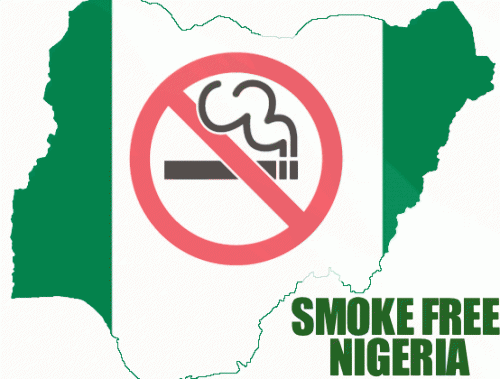
The tobacco industry’s desperation to recruit young smokers to replace a dying generation of aged tobacco addicts has definitely intensified going by data from the World Health Organisation (WHO) which also show that of the 27 countries where smoking rates have increased over the past 15 years, 17 are in Africa. Congo-Brazzaville topped this list with 22 per cent in 2015, up from six per cent in 2000, while the Camerounian share was more than a double from seven per cent to 22 per cent within the same period.
In Cameroun where it has come to light that the tobacco industry is targeting schools for replacement smokers, the Coalition Camerounaise Contre le Tabac – C3T (the Cameroonian Coalition to Counter Tobacco) has released a report in 2016 that tobacco corporations have been involved in multiple marketing strategies to woo children around schools. Some of the strategies it noted, includes sale of single sticks of cigarettes; display of posters on doors and windows of stores and sidewalks; and display of tobacco products on the counter, behind the counter or with non-tobacco products in the stores, among others. Makers of e-cigarettes are also reaching millions of teenagers with their ads.
In the same report, 85 per cent of the schools surveyed have points of sale very close to and visible from the school gates, with 100 per cent of the schools surveyed having stores in the vicinity selling single cigarettes. In the study, 55 per cent of the schools surveyed had tobacco advertisements on sidewalks around stores. Flavoured tobacco products are also sold around schools.
On a global scale, it is known that despite legal settlements and laws that have curtailed some of their marketing, tobacco companies still expend huge to promote their poisonous and addictive products to entice and addict kids.
In the United States, the Surgeon General’s report in 2012 titled: Preventing Tobacco Use Among Youth and Young Adults, concluded that the scientific evidence “consistently and coherently points to the intentional marketing of tobacco products to youth as being a cause of young people’s tobacco use.” The thinking of the tobacco industry is that the more adolescents are exposed to tobacco marketing, the more likely they will smoke as adults.
These startling revelations should however be a wake-up call to the Nigerian government to stand on the side of the people by ensuring that key provisions for effective implementation of Nigeria’s National Tobacco Control (NTC) Act 2015 are in sync with the recommendations of the World Health Organisation Framework Convention on Tobacco Control (WHO-FCTC). Of particular importance is the need for the National Tobacco Control Committee (NATOCC) to remain unwavering in its statutory role of advising the Health Minister aright in matters relating to tobacco control.
Experts have particularly emphasized the dangers of delayed implementation of the legislation which makes it open to derailment by the tobacco industry.
It is in this light that last week’s Save Our Souls by the Initiative of Public Policy Analysis (IPPA) published in one of the leading dailies should raise some hairs. The IPPA had expressed aversion to stringent anti-tobacco laws, especially those that will allegedly “strangulate the local tobacco industry”
The IPPA argument however lacks merit when viewed from the prism that the same organisation spearheaded a campaign that would have thwarted the NTC Act at its early stages when it had alleged thousands of jobs would be lost in a tobacco control regime. Thanks to the doggedness of anti-tobacco groups who debunked the allegations of the existence.
The Federal Ministry of Health should also spearhead a review of sections of the NTC Act that are obvious booby traps that can be exploited by the tobacco corporations to market their wares to kids. One of them is the provision on Ban on Tobacco Advertising Promotion and Sponsorship (TAPS) which exempts “consenting adults”.
What the Nigerian government must however understand is that for the tobacco industry, consenting adults are youths that are targeted through initiatives like the Secret Smoking Party which is still a big issue involving a leading tobacco company in Nigeria. The said company was said to have held the secret nightly parties in several states of the federation, with invited guests being mostly students aged between 17 and 20 years. At the entrance of the parties, the youths are asked if they were already smokers. If they are not, they are given sticks of cigarette to puff and encouraged to light up on their own. The parties usually held between 10pm and 4am the following morning.
Credit: http://www.leadership.ng/